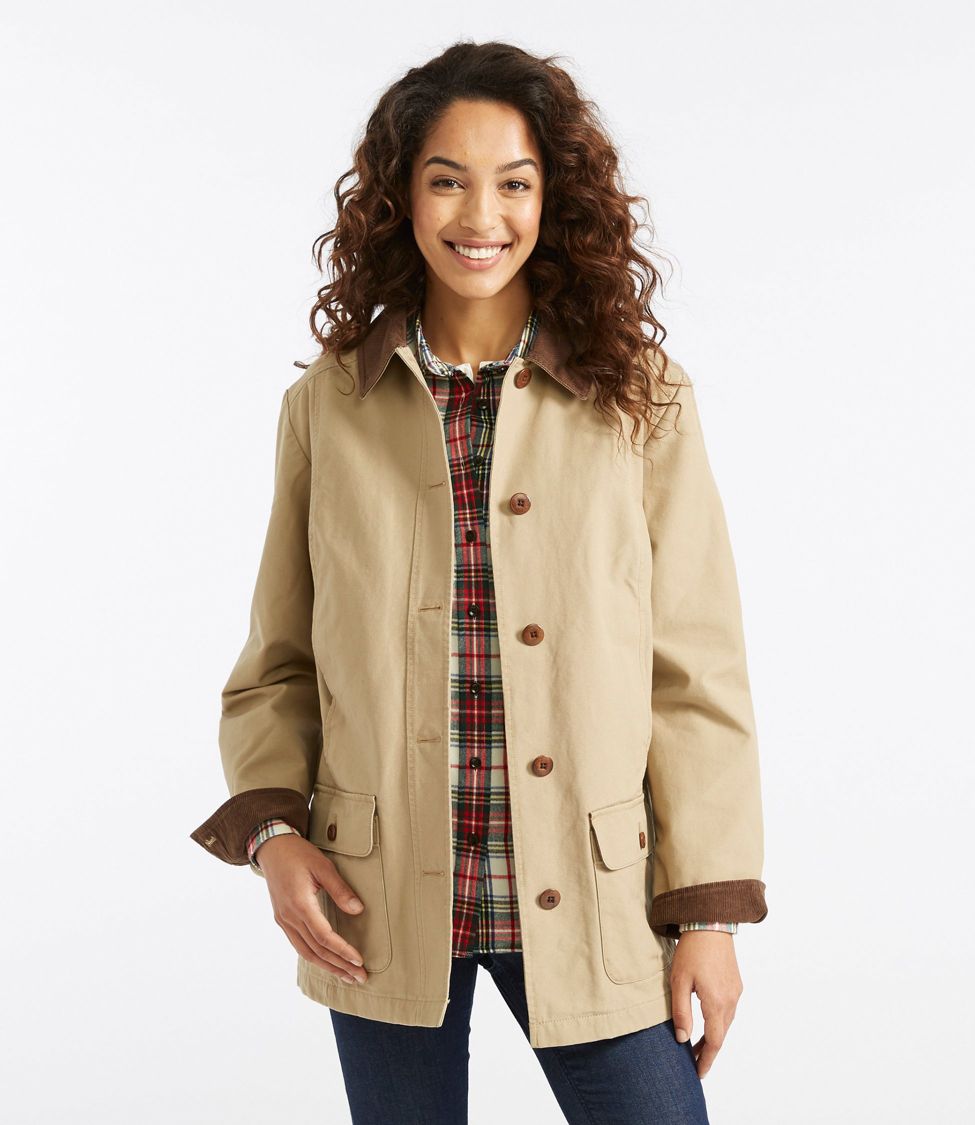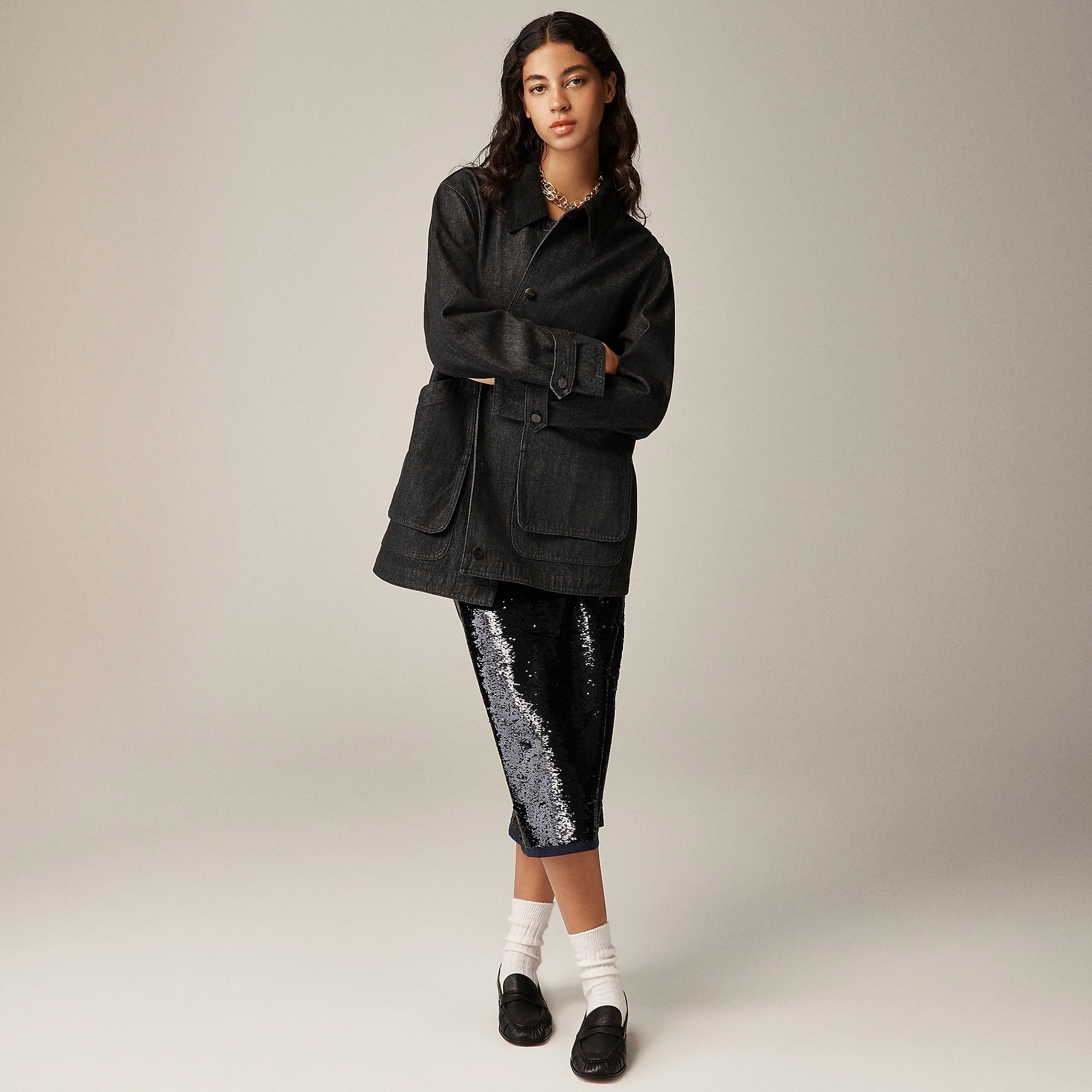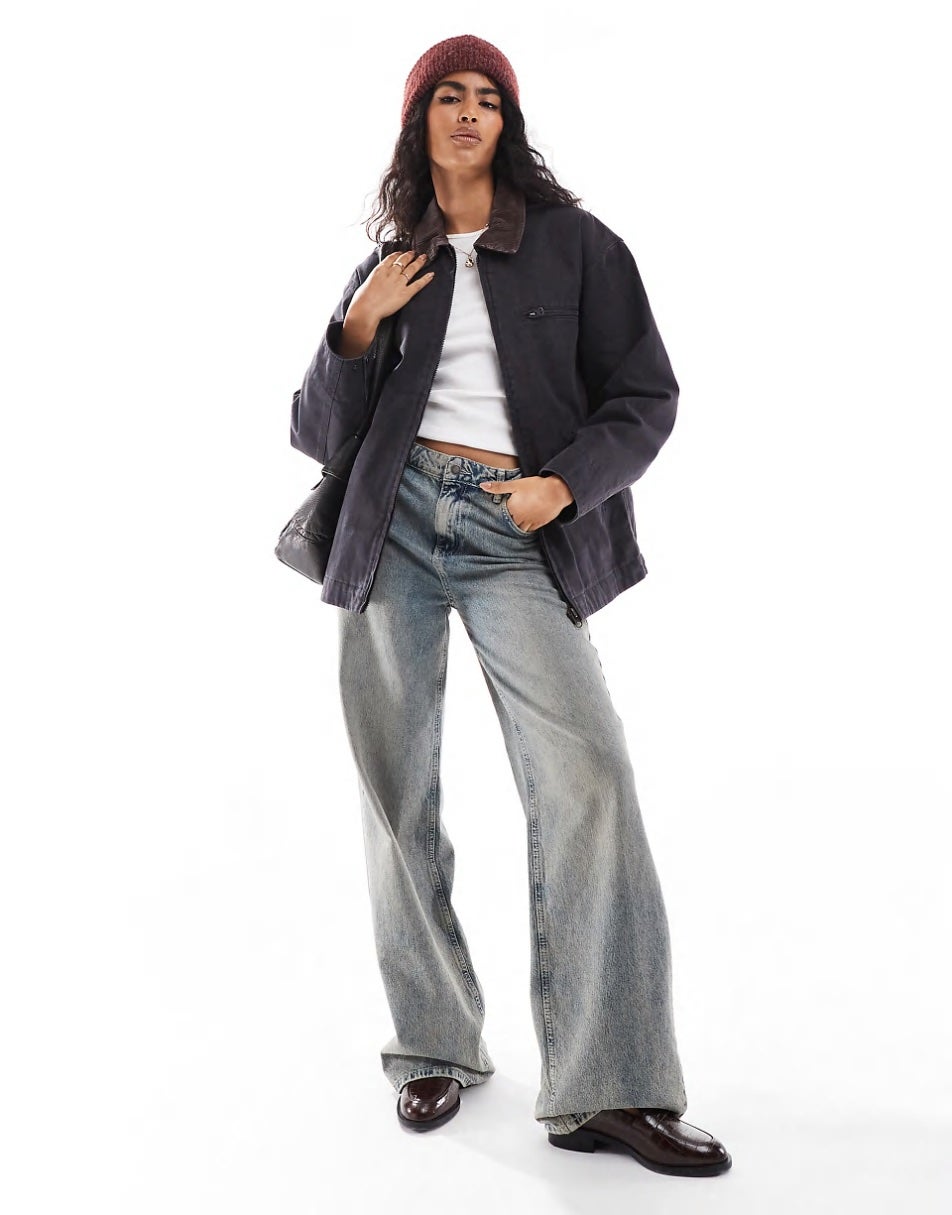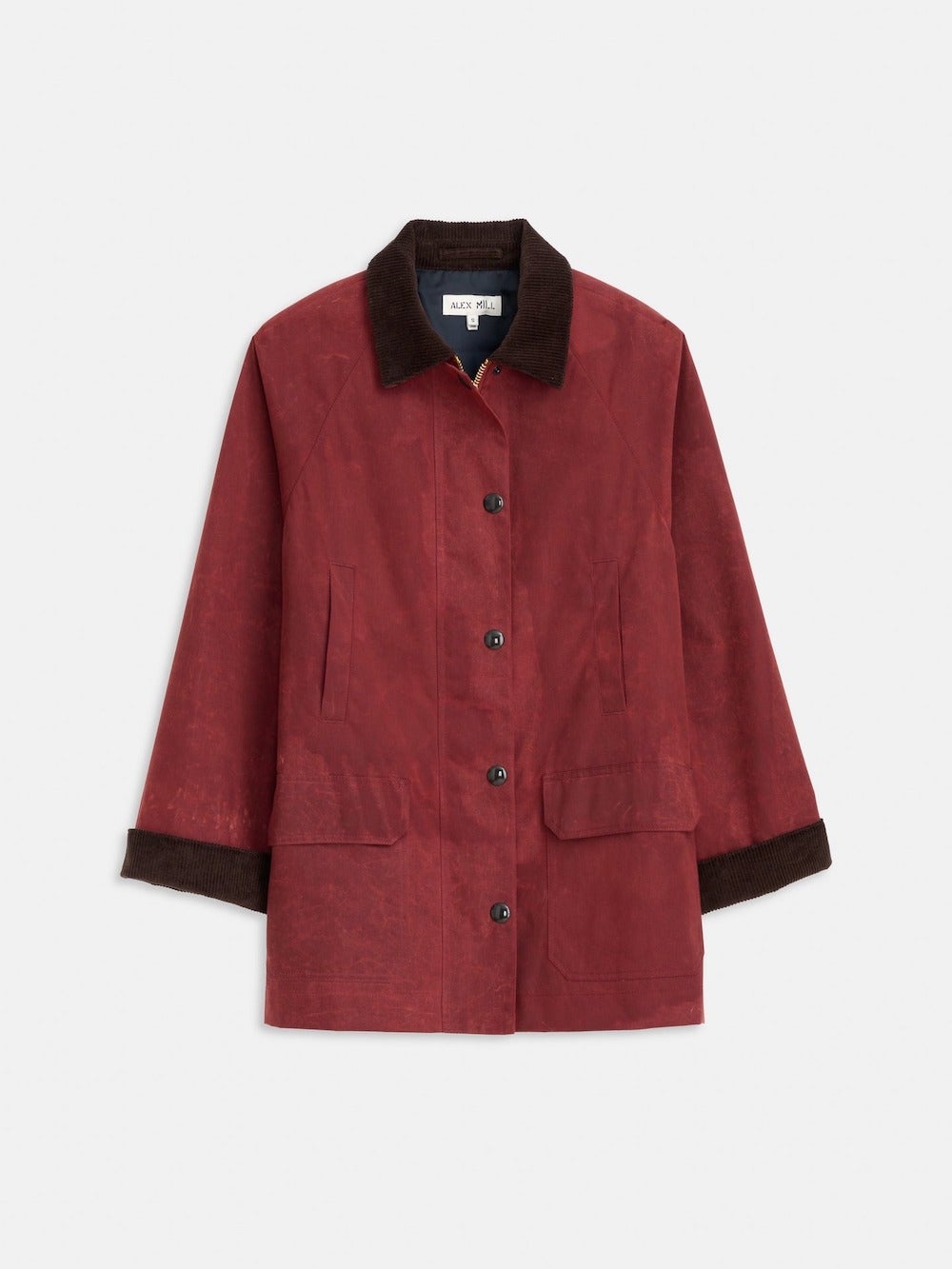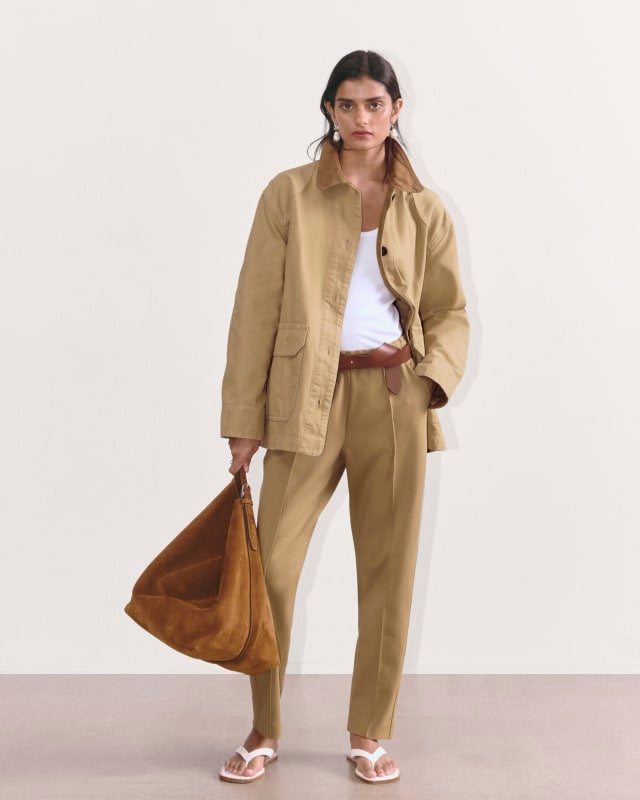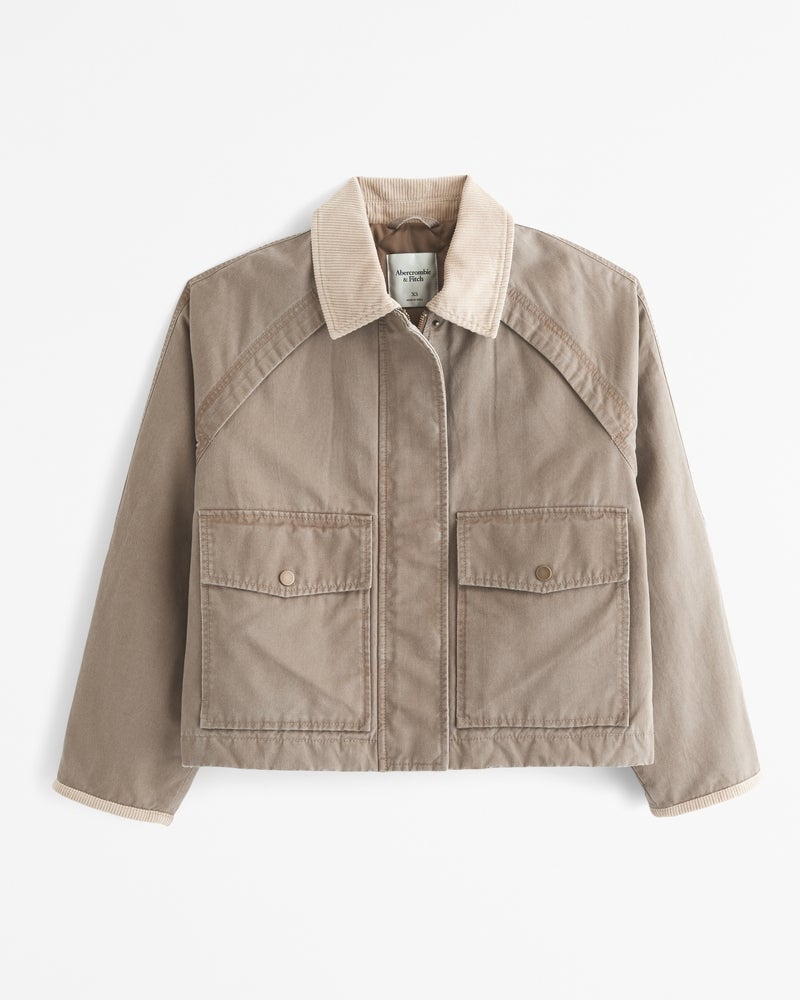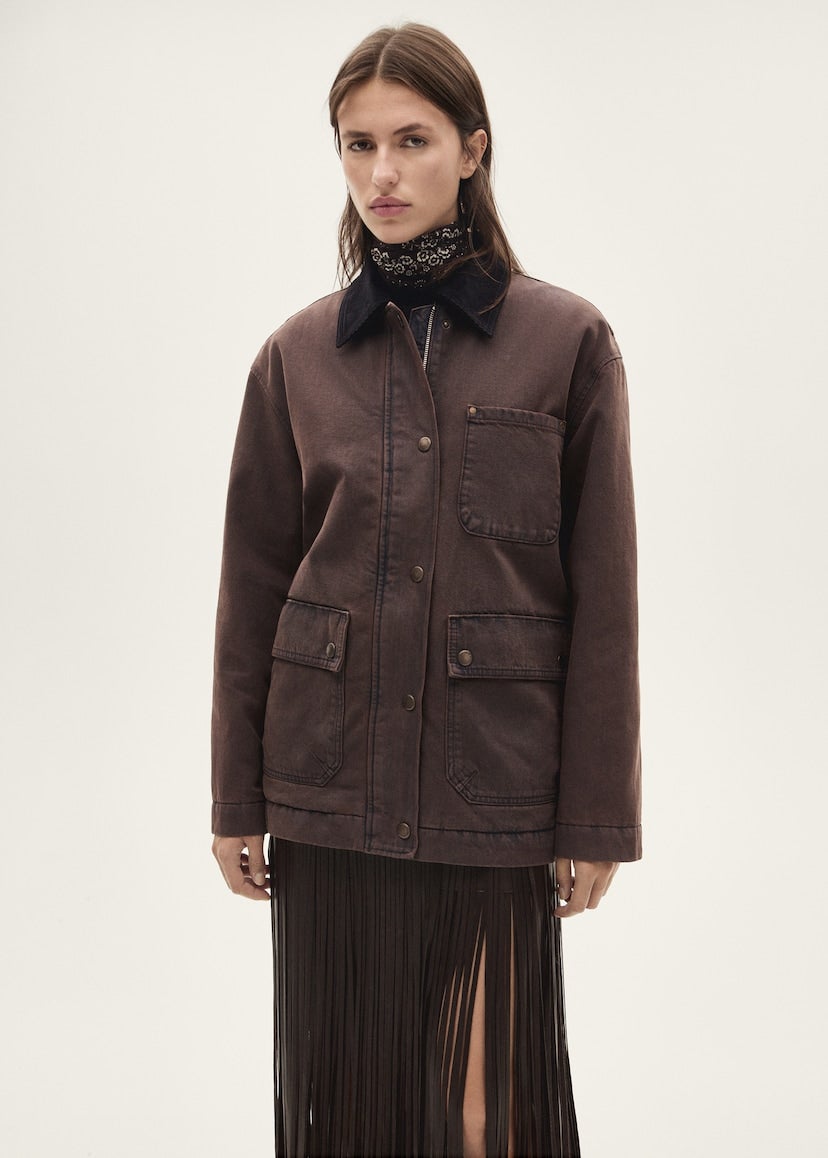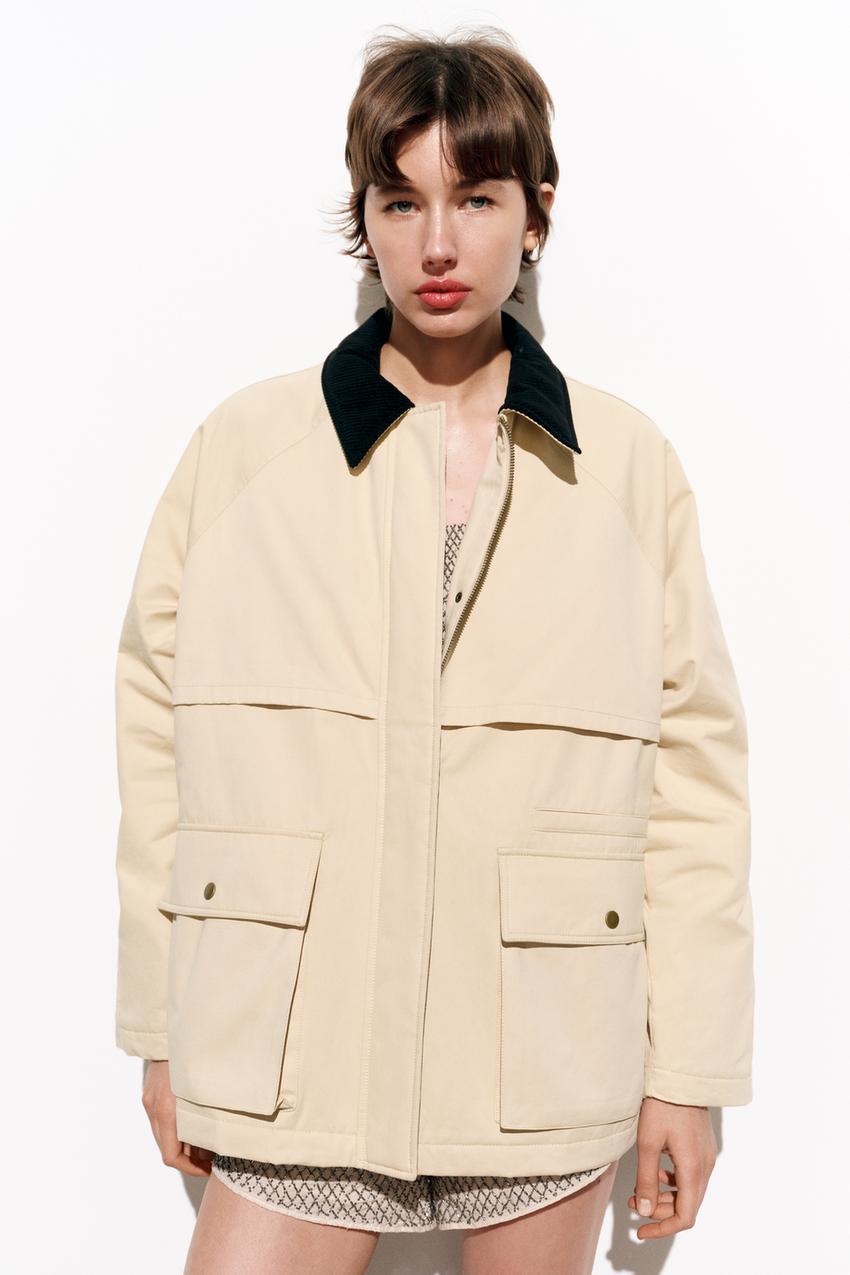All linked products are independently selected by our editors. If you purchase any of these products, we may earn a commission.
No need to muck a barn or toss a bale of hay to wear one of the autumn'sbiggest trends — workwear is no longer for work’s sake (at least not exclusively). Barn jackets have emerged as the leading outerwear for the season.
Think of it as a relative to utilitarian staples like the field jacket or chore coat: According to Anne Smith, L.L.Bean’s Vice President of Merchandising, it was first designed for those working in the fields and, as the name suggests, around barns in the countryside. The cut is longer and boxier than other work coats, with gusseted shoulders for easy movement, typically rendered in durable yet lightweight cotton canvas and designed to stand up to splinters, nails, or thorns. It’ll usually have a flannel lining and corduroy collar, which is soft against the skin, and large patch pockets to store tools while working.
AdvertisementADVERTISEMENT
L.L. Bean launched its Field Coat back in 1924. (In 2003, it revamped the design and released it as the Adirondack Barn Coat.) “For L.L. himself, who was a big duck hunter, he created products that he and his friends needed to keep them comfortable in the field,” says Smith. The corduroy collar could be flipped up to protect the neck in windy conditions and rest softly on the skin; the big, rounded pockets could hold ducks or shotgun shells.
Barbour launched its iteration of a barn coat, the Bedale, 40 years ago.“Most heritage brands begin by answering a need,” says Gary Janes, senior design and development manager of menswear, accessories, and boyswear at the brand. “In our case, that was providing very robust and intelligently designed outerwear for the working people of the North East of England.” It was first designed by Dame Margaret Barbour as an equestrian jacket — made of waxed cotton to offer resistance from the wind and rain and featuring functional details like moleskin-lined pockets to keep the hands warm and a two-way ring pull zip to fasten the coat without taking gloves off.
J.Crew entered the conversation in 1983. Sid Marshburn, who designed the brand’s first Barn Jacket, told author Maggie Bullock while fact-checking her book, The Kingdom Of Prep: “Between a host of vintage hunting and field jackets, I picked my favourite details from about five different ones.” He applied J.Crew’s signature oversized fit, using a waxy finish poplin for a lighter feel than traditional hunting jackets.
AdvertisementADVERTISEMENT
The barn jacket’s popularity has endured even as needs have shifted. The design may be ruggedly functional, but it has managed to make its way into the wardrobes of celebrities diametrically opposed style-wise — the late Queen Elizabeth II, Governor Tim Walz, and Hailey Bieber all included. And, despite its humble beginnings, it has been bit by the luxury bug in recent seasons: Prada is selling one for $5,000; Miu Miu’s take is $3,800, The Row’s is $2,980, Loewe’s is $2,900. (In denim, though, the latter’s just $1,700.)
Luxury designers may riff on workwear on the runway, but their inspiration comes from those who wore it functionally first. For Derek Guy, menswear writer and creator of Die! Workwear, the barn jacket’s revival plays into the upward funnel of the trend cycle. “The turtleneck, for example, was originally worn by sailors, and then was picked up by London elites in the early 20th century,” he explains. “Over time, fashion influence switched from primarily coming from those with financial capital to those with cultural capital.”
This isn’t the barn jacket’s first resurgence — in the early aughts, a mall-tinged take on Americana emerged, idealised by Bruce Weber-lensed Abercrombie and Fitch ads. “It was worn in a way to hint at wealth, essentially,” says Guy. “It was a preppy look.”
A renewed nostalgia for American prep, with old J.Crew and Ralph Lauren ads getting their own Instagram fan accounts, has positioned the barn jacket for yet another comeback, and heritage labels are using the opportunity to get back into the conversation — by relaunching classic designs, resurrecting nostalgic media like J.Crew’s new catalog, or partnering with popular vintage sellers, as L.L. Bean has with Wooden Sleepers. Workwear brands like Carhartt (founded in 1889) and Dickies (founded in 1922), who created durable clothing for actual physical labourers, have found a modern fan base among those more likely to spend the day in front of a laptop.
AdvertisementADVERTISEMENT
Though its function remains, in its current iteration, the Barn Jacket is most often used to tone down the sharp tailoring of quiet luxury, to add a down-to-earth touch, even if it comes at a sky-high price point. On the runway at Prada, for example, the jacket was styled with a knit bodysuit, red fringe skirt, and pumps. At Miu Miu, a slouchy, oversized version sat over a chunky turtleneck, a flouncy yellow midi skirt, and lace-up boots.
“The Barn Jacket just works really well because it has that Midwestern ‘real American’ kind of flavor,” says Guy.
Even if the desired look is Prada-esque, one benefit of a returning trend is that there’s no need to buy one new. In fact, a quick peruse on eBay will lead to a dozen or more pages of pre-loved options from J.Crew and L.L. Bean at a much lower price point. Guy also suggests the now-defunct, mid-century hunting brand Duxbak as an alternative that offers something a bit more unique and captures the same nostalgia and worn-in quality — though, he considers a vintage L.L. Bean style to be the quintessential Barn Jacket.
“We've been around for a long time,” says L.L. Bean’s Smith. “It's that kind of earnest utilitarianism that makes us credible.”
shop 6 products
AdvertisementADVERTISEMENT







